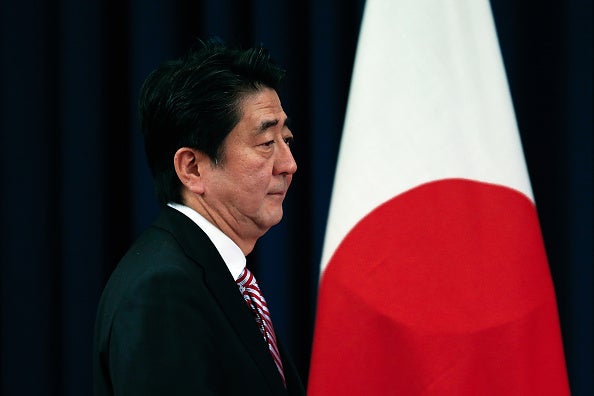Japan PM Shinzo Abe dissolves parliament to trigger snap election
Next month's election follows news that Japan has fallen into a recession

Reeling from the revelation this week that Japan has slipped into recession, Prime Minister Shinzo Abe has dissolved the lower house of parliament and forced a snap election.
Abe has claimed the election, which is expected to be held on December 14, will be a referendum on his economic revitalisation policies — known as Abenomics — and the postponement of a tax hike that was planned for next October.
It is likely that Abe's Liberal Democratic Party, which has been in power for most of the post-World War II era, will retain a solid majority with its coalition partner in the 480-seat lower house — though it may lose some seats.
On Monday, Japan said its economy — the world's third-largest — unexpectedly shrank for the second straight quarter, a development largely blamed on a hike in the sales tax in April.
"The battle is now starting," Abe told his party shortly after the dissolution.
"It was certainly to prolong his life as prime minister," former lawmaker Mieko Nakabayashi told Associated Press.
With the opposition parties in disarray, Abe can be fairly confident voters will give the LDP a victory that will keep him in office. The public's focus is on the economy and few voters would oppose delaying a tax increase.
The main opposition Democratic Party of Japan, which led the country for three years until September 2012, deeply disappointed voters with their failure to achieve promised goals and perceived lack of leadership.
While Abe isn't wildly popular among public, voters appear to be more willing to trust him and the LDP, which led Japan for decades, including through its high-growth era in the 1960s and into the booming 1980s.
In the first half of next year, Abe plans to tackle contentious issues that could erode support for his government, namely legislation to expand Japan's military role and restart nuclear power plants.
"It's like pushing a reset button," said Koichi Nakano, an international politics professor at Sophia University in Tokyo.
Abe got a rare second term as prime minister after stepping down just a year into his rocky first term in office in 2006-2007. His support ratings started out high as share prices surged in early 2013. But they have fallen recently as parliament got bogged down in squabbles over campaign finance scandals that forced out two of his Cabinet ministers within weeks of an early September reshuffle.
Additional reporting by Associated Press
Join our commenting forum
Join thought-provoking conversations, follow other Independent readers and see their replies
Comments
Bookmark popover
Removed from bookmarks